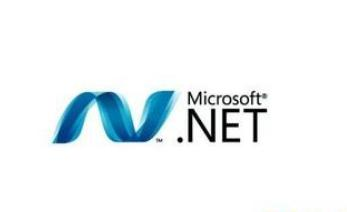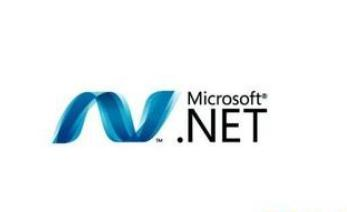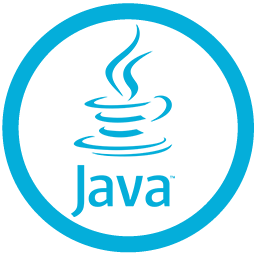 Backend Development
Backend Development
 C#.Net Tutorial
C#.Net Tutorial
 A brief discussion on boxing and unboxing core architecture design
A brief discussion on boxing and unboxing core architecture design
A brief discussion on boxing and unboxing core architecture design
Content introduction • Overview • What happens behind the scenes when you declare a variable? • Heap and stack • Value types and reference types • Which are value types and which are reference types? • Boxing and unboxing • Performance issues of boxing and unboxing 1. Overview This article will explain six important concepts: heap, stack, value type, reference type, boxing and unboxing. This article will start by explaining what happens inside the system when you define a variable, and then shift the focus to the storage duo: the heap and the stack. Later, we will explore value types and reference types and explain the important basics about these two types. This article will use a simple code to show the performance impact caused by the boxing and unboxing process. Please read it carefully. 2. What happens behind the scenes when you declare a variable? When you define a variable in a .NET application, some block of memory is allocated for it in RAM. This memory contains three things: the name of the variable, the data type of the variable, and the value of the variable. The above is a brief explanation of what happens in memory, but exactly what type of memory your variables are allocated to depends on the data type. There are two types of allocable memory in .NET: stack and heap. In the next few parts
1. Six important concepts in .NET: stack, heap, value type, reference type, boxing and unboxing

Introduction: This article will explain six important concepts: heap, stack, value type, reference type, boxing and unpacking box. This article will start by explaining what happens inside the system when you define a variable, and then shift the focus to the storage duo: the heap and the stack. Later, we will explore value types and reference types and explain the important basics about these two types.
2. C# Basic knowledge of basic knowledge (19) Boxing and unboxing of value types (2)

Introduction: If the code will cause repeated boxing by the compiler, you can change it to manual boxing. This will make the code execute faster. See the following code:
3. C# Basic knowledge of basic knowledge (18) Boxing and unboxing of value types (1)

Introduction: It is actually very interesting to understand boxing and unboxing carefully. First, let’s look at why boxing and unboxing occur?
4. C# Detailed explanation of the principles of boxing and unboxing

##Introduction: This article mainly introduces the principles of C# boxing and unboxing through illustrations. The content is very simple. Interested friends can refer to
5. c# Packing and unboxing knowledge collection

6.
In-depth boxing and unboxing in Java Understanding

7. Generics in
Introduction: This article mainly talks about generics in C#, because generics play a very important role in C# and play a key role in writing highly readable and high-performance code. When I see many times that my team's code contains a large number of non-generic collections and implicit boxing and unboxing operations, I will suggest that they add a generic base 【Related Q&A recommendations】:  #
#
The above is the detailed content of A brief discussion on boxing and unboxing core architecture design. For more information, please follow other related articles on the PHP Chinese website!

Hot AI Tools

Undresser.AI Undress
AI-powered app for creating realistic nude photos

AI Clothes Remover
Online AI tool for removing clothes from photos.

Undress AI Tool
Undress images for free

Clothoff.io
AI clothes remover

Video Face Swap
Swap faces in any video effortlessly with our completely free AI face swap tool!

Hot Article

Hot Tools

Notepad++7.3.1
Easy-to-use and free code editor

SublimeText3 Chinese version
Chinese version, very easy to use

Zend Studio 13.0.1
Powerful PHP integrated development environment

Dreamweaver CS6
Visual web development tools

SublimeText3 Mac version
God-level code editing software (SublimeText3)

Hot Topics
 1655
1655
 14
14
 1414
1414
 52
52
 1307
1307
 25
25
 1253
1253
 29
29
 1227
1227
 24
24
 C# .NET Interview Questions & Answers: Level Up Your Expertise
Apr 07, 2025 am 12:01 AM
C# .NET Interview Questions & Answers: Level Up Your Expertise
Apr 07, 2025 am 12:01 AM
C#.NET interview questions and answers include basic knowledge, core concepts, and advanced usage. 1) Basic knowledge: C# is an object-oriented language developed by Microsoft and is mainly used in the .NET framework. 2) Core concepts: Delegation and events allow dynamic binding methods, and LINQ provides powerful query functions. 3) Advanced usage: Asynchronous programming improves responsiveness, and expression trees are used for dynamic code construction.
 Testing C# .NET Applications: Unit, Integration, and End-to-End Testing
Apr 09, 2025 am 12:04 AM
Testing C# .NET Applications: Unit, Integration, and End-to-End Testing
Apr 09, 2025 am 12:04 AM
Testing strategies for C#.NET applications include unit testing, integration testing, and end-to-end testing. 1. Unit testing ensures that the minimum unit of the code works independently, using the MSTest, NUnit or xUnit framework. 2. Integrated tests verify the functions of multiple units combined, commonly used simulated data and external services. 3. End-to-end testing simulates the user's complete operation process, and Selenium is usually used for automated testing.
 C# .NET: Exploring Core Concepts and Programming Fundamentals
Apr 10, 2025 am 09:32 AM
C# .NET: Exploring Core Concepts and Programming Fundamentals
Apr 10, 2025 am 09:32 AM
C# is a modern, object-oriented programming language developed by Microsoft and as part of the .NET framework. 1.C# supports object-oriented programming (OOP), including encapsulation, inheritance and polymorphism. 2. Asynchronous programming in C# is implemented through async and await keywords to improve application responsiveness. 3. Use LINQ to process data collections concisely. 4. Common errors include null reference exceptions and index out-of-range exceptions. Debugging skills include using a debugger and exception handling. 5. Performance optimization includes using StringBuilder and avoiding unnecessary packing and unboxing.
 From Web to Desktop: The Versatility of C# .NET
Apr 15, 2025 am 12:07 AM
From Web to Desktop: The Versatility of C# .NET
Apr 15, 2025 am 12:07 AM
C#.NETisversatileforbothwebanddesktopdevelopment.1)Forweb,useASP.NETfordynamicapplications.2)Fordesktop,employWindowsFormsorWPFforrichinterfaces.3)UseXamarinforcross-platformdevelopment,enablingcodesharingacrossWindows,macOS,Linux,andmobiledevices.
 The Continued Relevance of C# .NET: A Look at Current Usage
Apr 16, 2025 am 12:07 AM
The Continued Relevance of C# .NET: A Look at Current Usage
Apr 16, 2025 am 12:07 AM
C#.NET is still important because it provides powerful tools and libraries that support multiple application development. 1) C# combines .NET framework to make development efficient and convenient. 2) C#'s type safety and garbage collection mechanism enhance its advantages. 3) .NET provides a cross-platform running environment and rich APIs, improving development flexibility.
 Advanced C# .NET Tutorial: Ace Your Next Senior Developer Interview
Apr 08, 2025 am 12:06 AM
Advanced C# .NET Tutorial: Ace Your Next Senior Developer Interview
Apr 08, 2025 am 12:06 AM
Interview with C# senior developer requires mastering core knowledge such as asynchronous programming, LINQ, and internal working principles of .NET frameworks. 1. Asynchronous programming simplifies operations through async and await to improve application responsiveness. 2.LINQ operates data in SQL style and pay attention to performance. 3. The CLR of the NET framework manages memory, and garbage collection needs to be used with caution.
 Is C# .NET Right for You? Evaluating its Applicability
Apr 13, 2025 am 12:03 AM
Is C# .NET Right for You? Evaluating its Applicability
Apr 13, 2025 am 12:03 AM
C#.NETissuitableforenterprise-levelapplicationswithintheMicrosoftecosystemduetoitsstrongtyping,richlibraries,androbustperformance.However,itmaynotbeidealforcross-platformdevelopmentorwhenrawspeediscritical,wherelanguageslikeRustorGomightbepreferable.
 C# .NET Security Best Practices: Preventing Common Vulnerabilities
Apr 05, 2025 am 12:01 AM
C# .NET Security Best Practices: Preventing Common Vulnerabilities
Apr 05, 2025 am 12:01 AM
Security best practices for C# and .NET include input verification, output encoding, exception handling, as well as authentication and authorization. 1) Use regular expressions or built-in methods to verify input to prevent malicious data from entering the system. 2) Output encoding to prevent XSS attacks, use the HttpUtility.HtmlEncode method. 3) Exception handling avoids information leakage, records errors but does not return detailed information to the user. 4) Use ASP.NETIdentity and Claims-based authorization to protect applications from unauthorized access.



